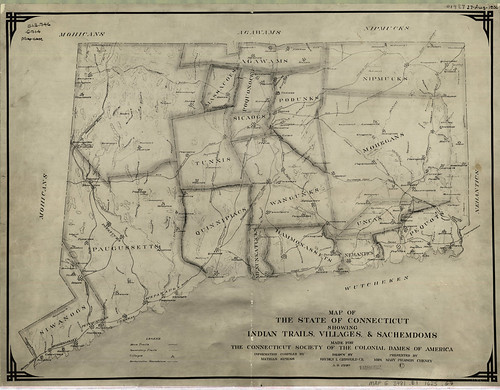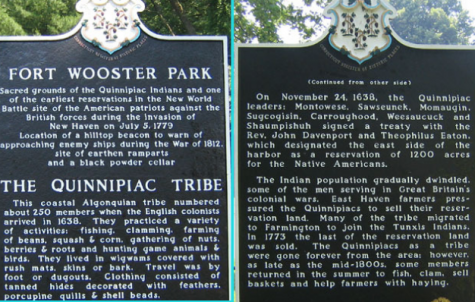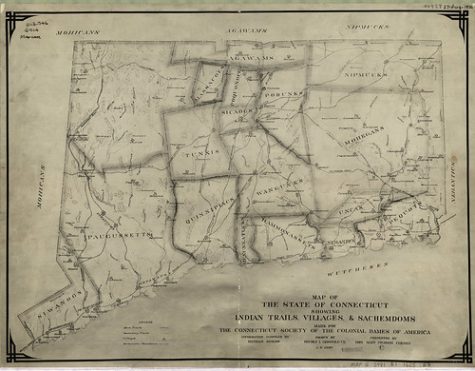Embracing the Native American in “Quinnipiac”

Courtesy of: The University of Connecticut library
October 16, 2019
The Algonquians were natives who lived in New Haven during the 1600’s, and the English called these natives the Quinnipiac Indians.

“It is important for us to honor their presence, their histories and their humanity,” Chief Diversity Officer and Vice President for Equity and Inclusion Don Sawyer said.
Lala Forrest is a sophomore at Quinnipiac University and a member of the Pit River Tribe, in Northern California.
The university name, Quinnipiac, stood out to her. After meeting with the director of admissions, she decided to attend Quinnipiac. Her goal is to become a doctor so she can go back and help her community.
Forrest attended a speaker on campus where Sawyer discussed his personal story.
“My grandmother’s lineage is traced to the Shinnecock Nation with headquarters in Suffolk County on Long Island,” Sawyer said.
After attending the discussion, Forrest reached out to Sawyer. She told him that his story resonated a lot with her own, and she explained that she’s never felt like Native American’s have been given representation within universities.
“When you usually go to school there is talk about diversity and inclusion and almost always in my experience Native American’s are left out because we don’t have representation,” Forrest said.
Now, Forrest and Sawyer are working with others in the community to change the way Native Americans are represented.
“As the University of the Future, we want to ensure we are recruiting, retaining and graduating a diverse, globally-engaged, civic-minded citizens equipped with the skills to make a difference in the world,” Sawyer said.
Executive Director of the Albert Schweitzer Institute and Professor of Political Science, Sean Duffy, sees this as an opportunity to make connections with native communities.
“We have this name and there is curiosity there,” Duffy said.
Quinnipiac has a contract with External Consultants, a Native American education initiative that works with institutions to start conversations around Native Americans.
In 1929, the school was named the Connecticut College of Commerce. Later it was renamed the Junior College of Commerce. In 1966, the college had outgrown its roots in New Haven and moved to Hamden, renaming the school to Quinnipiac.
“They picked the indigenous name for New Haven, where Quinnipiac was located at the time,” Duffy said. “As a way of anchoring itself to that place and provoking this idea of belonging.”

Events and speakers for the arguamount initiative will continue throughout the course of this year. The next event will be held on Nov. 19 in the Student Center Piazza.
“We’re finally giving room for native students and the Native American community members to come and join together, and also allies to help have that representation,” Forrest said.
Historical information found at www.colonialwarsct.org






